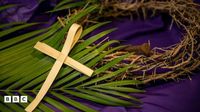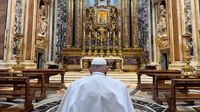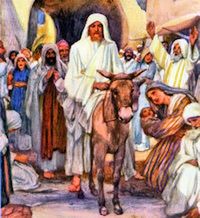Holy Week is one of the most important and solemn periods in the Christian calendar, marking a time of reflection and remembrance leading up to Easter. This year, Holy Week begins on Palm Sunday, April 13, 2025, and extends through to Easter Sunday on April 20, 2025. Each day of this week holds significant meaning for Christians around the world, commemorating key events in the life of Jesus Christ.
The week starts with Palm Sunday, which celebrates Jesus' triumphant entry into Jerusalem. According to the Bible, Jesus rode into the city on a donkey, greeted by crowds waving palm leaves and shouting praises. This event symbolizes the recognition of Jesus as the Messiah, just days before his crucifixion. Special services are held in churches, where congregants often receive palm crosses as a reminder of this momentous occasion.
Following Palm Sunday, the days of Holy Week include Holy Monday, Holy Tuesday, and Holy Wednesday, also known as Spy Wednesday. Each of these days is marked by specific events in the final days of Jesus' life, including teachings and the cleansing of the temple. Holy Wednesday is particularly significant as it is believed to be the day Judas Iscariot betrayed Jesus, setting in motion the events leading to the crucifixion.
As Holy Week progresses, Maundy Thursday holds a special place in Christian tradition. This day commemorates the Last Supper, where Jesus shared a final meal with his disciples before his arrest. The term "Maundy" is derived from the Latin word "mandatum," meaning command, referring to Jesus' instruction to love one another. In many churches, a ritual of foot washing takes place, echoing Jesus' act of humility and service to his disciples. In the Roman Catholic Church, the Pope traditionally washes and kisses the feet of twelve individuals, symbolizing this commandment of love.
The solemnity of Good Friday follows Maundy Thursday, marking the day of Jesus' crucifixion. Many Christians observe this day with fasting and reflection, remembering the sacrifice made for humanity's sins. Churches often hold services that include the reading of the Passion narrative and the veneration of the cross.
Holy Saturday, the day before Easter, is a time of waiting and preparation for the celebration of the resurrection. It is a quieter day, as Christians reflect on the significance of Jesus' death and anticipate the joy of Easter Sunday, when the resurrection is celebrated.
This year, the observance of Holy Week coincides with significant retail adjustments in Greece. Starting on Holy Monday, April 14, stores will operate from 09:00 to 21:00 until Holy Thursday, April 17. On Good Friday, April 18, hours will change to 13:00 to 19:00, reflecting the day's solemn character. Holy Saturday will see stores open from 09:00 to 15:00, while all businesses will close on Easter Sunday, April 20, and Easter Monday, April 21. These changes are aimed at accommodating holiday shoppers, but early reports indicate a decline in consumer turnout.
Thanos Tsaggaris, President of the Athens Traders Association, expressed concern over the shift in consumer behavior. "Compared to last year, foot traffic is significantly lower," Tsaggaris stated, attributing this decline to changing spending habits, with more people opting for dining out or short trips rather than retail shopping. He noted that broader economic pressures, including potential European responses to U.S. tariffs, are also contributing to a cautious consumer sentiment.
Interestingly, the trend of reduced retail activity appears to be more pronounced in urban areas such as Athens. Tsaggaris remarked, "In the provinces, people are more social and community-driven. They support local markets more actively than in large cities." As retailers navigate the crucial days leading up to Orthodox Easter, many are hoping for a last-minute sales boost.
In Rome, Pope Francis marked the eve of Palm Sunday with a visit to the Basilica of Saint Mary Major. This visit was particularly poignant as it was the 126th time he has prayed before the icon of the Virgin Mary, Salus Populi Romani. The Pope's devotion to this icon is well-known, and he has made it a tradition to pray there before and after each Apostolic Journey since his election in March 2013. His recent visit came shortly after his discharge from the Gemelli Hospital, where he had been treated, underscoring his commitment to his spiritual duties even in times of personal health challenges.
During this visit, Pope Francis presented a bouquet of flowers to Cardinal Rolandas Makrickas, the Coadjutor Archpriest of the Basilica, to be placed before the sacred icon. This gesture reflects the Pope's deep reverence for the Virgin Mary and the role of prayer in the Christian faith. His previous visit to the Basilica was on December 14, 2024, ahead of his 47th Apostolic Journey to Corsica.
As Holy Week unfolds, Christians around the world will engage in various traditions and rituals, reflecting on the profound significance of these events in their faith. From the jubilant celebrations of Palm Sunday to the somber observances of Good Friday, Holy Week serves as a reminder of the core tenets of Christianity: sacrifice, love, and the promise of resurrection.








